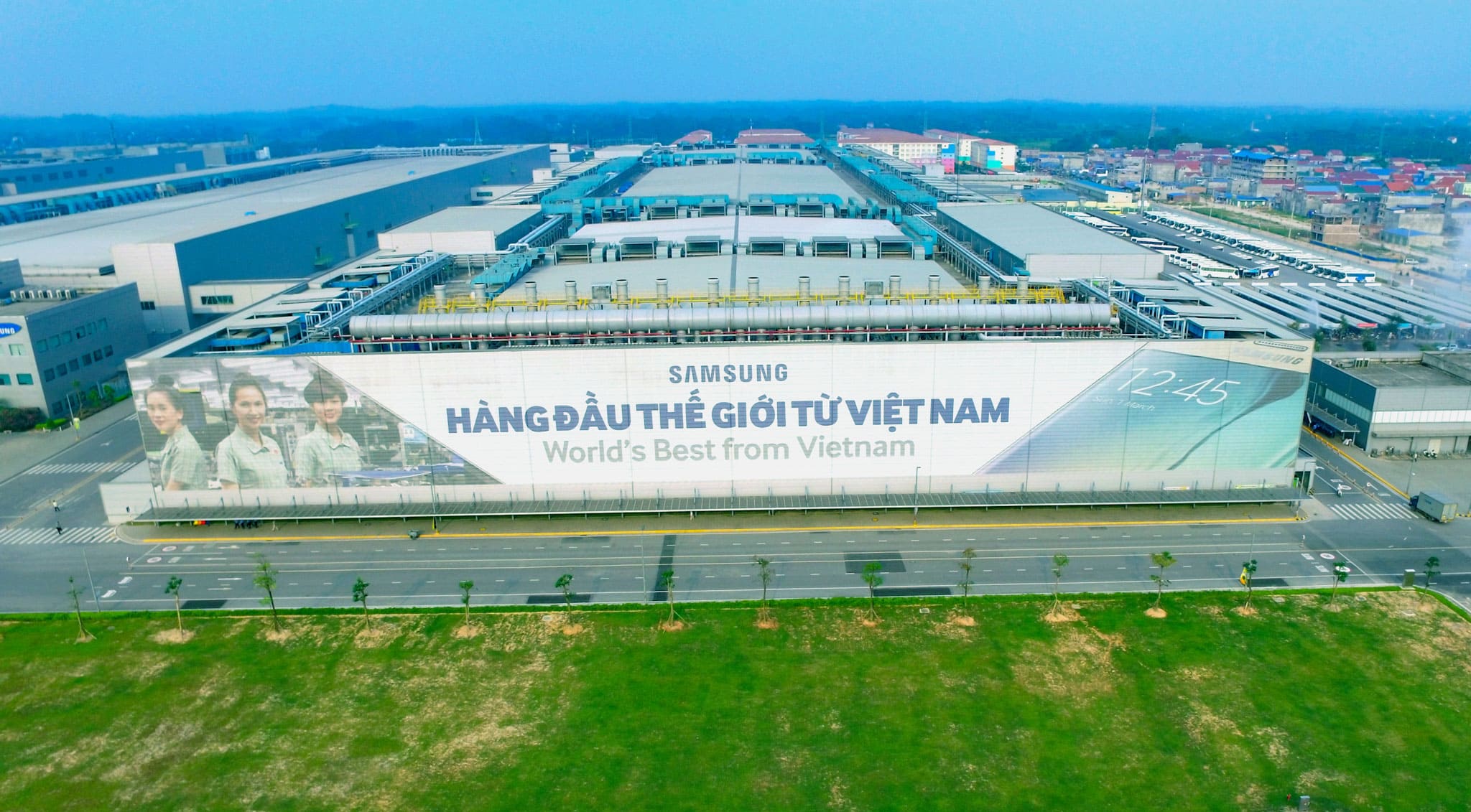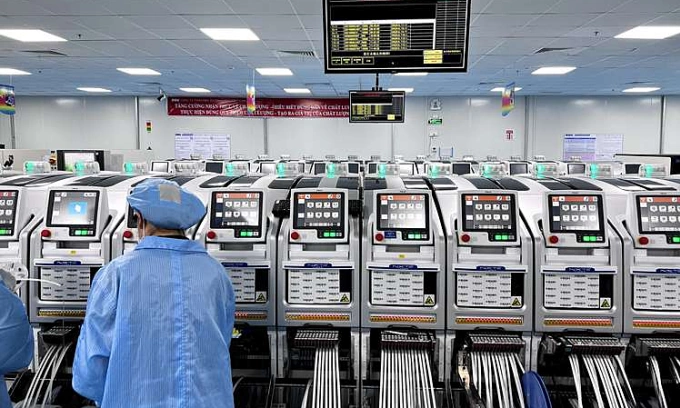The smartphone assembly plant in Vietnam plays a crucial role in the global supply chain, leveraging the country’s skilled workforce and competitive manufacturing costs. It contributes significantly to the production efficiency and distribution of advanced mobile technology worldwide.
Vietnam’s electronics sector is a magnet for Korean investors, with the country producing 20% of the world’s smartphones, led by giants like Samsung, which invested $20 billion by 2023. The demand for smartphone assembly plants in Hanoi, Ho Chi Minh City, and Bac Ninh is soaring, driven by low costs, a skilled workforce, and trade perks through agreements like the Korea-Vietnam Free Trade Agreement (KVFTA). However, setting up a plant requires navigating Vietnam’s legal landscape, from business registration to environmental compliance. At La Défense Law Firm, we guide Korean investors through these steps with clarity. This guide outlines practical legal steps for Korean companies to start a smartphone assembly plant in Vietnam, ensuring a smooth and profitable venture.

Why Vietnam’s Smartphone Assembly Market Appeals to Korean Investors
Vietnam’s electronics industry, valued at $110 billion, grows 10-12% annually, with smartphone assembly leading the charge. Korean firms like LG and Samsung thrive in Vietnam, leveraging a tech-savvy workforce and proximity to South Korea (a 4-hour flight). The KVFTA slashes tariffs on components, and Vietnam’s 100-million-strong consumer base demands affordable smartphones, from Hanoi’s retail stores to Ho Chi Minh City’s online markets. Cultural ties, like shared diligence, foster strong partnerships.
Start by understanding this demand. La Défense Law Firm analyzes Vietnam’s electronics market, ensuring your plant—say, assembling budget smartphones in Bac Ninh or premium models in Ho Chi Minh City’s District 7—meets local and global needs. We guide compliance with Vietnam’s trade laws, helping your firm succeed in this thriving sector.
Step 1: Register Your Assembly Business
To launch a smartphone assembly plant, Korean investors must register under Vietnam’s Law on Enterprises, typically as a wholly foreign-owned limited liability company (LLC). Submit a Vietnamese-language application to the Department of Planning and Investment in Hanoi, Ho Chi Minh City, or Bac Ninh, detailing your capital (often $1 million minimum for manufacturing), production scope, and facility plans. Errors, like unclear assembly plans, delay approvals from the Ministry of Planning and Investment (MPI).
Legal support makes it simple. La Défense prepares filings for your plant in Hanoi’s Long Bien or Binh Duong, ensuring MPI compliance. We secure your license, setting your business—whether assembling 5G phones in Hai Phong or components in Ho Chi Minh City’s District 9—on a solid legal foundation for a fast start.

Step 2: Secure Manufacturing Licenses
Smartphone assembly requires a Manufacturing License from the Ministry of Industry and Trade, proving compliance with technical standards, safety protocols, and quality control. If importing components, you’ll need a Customs Clearance Permit, filed in Vietnamese, to streamline supply chains through ports like Hai Phong or Da Nang. Non-compliance risks fines or production delays, stalling your plant in Hanoi’s industrial zones or Ho Chi Minh City’s tech hubs.
Legal expertise speeds approvals. La Défense compiles dossiers for your plant in Bac Ninh or Nha Trang, coordinating with authorities. We ensure your assembly line—producing screens in Hanoi’s Cau Giay or batteries in Ho Chi Minh City’s District 1—meets Vietnam’s regulations, keeping operations smooth without legal hurdles.
Step 3: Choose an Industrial Zone for Your Plant
Vietnam’s 400+ industrial zones (IZs), like those in Hanoi’s Ba Dinh, Bac Ninh, or Ho Chi Minh City’s District 7, offer ready infrastructure, tax breaks (10% corporate tax for 15 years), and no import duties for exported smartphones. Proximity to ports in Hai Phong or airports in Da Nang cuts shipping costs, ideal for Korean firms serving global markets. However, land leases and local bureaucracy in Vietnamese can complicate setup.
Legal support optimizes your choice. La Défense advises on IZs, securing leases for your plant in Binh Duong or Hanoi’s Long Bien, where Korean FDI reached $81 billion by 2023. We handle Vietnamese contracts, ensuring your facility—assembling phones in Da Nang or parts in Ho Chi Minh City’s District 7—benefits from Vietnam’s incentives and logistics.

Step 4: Navigate Taxation and KVFTA Benefits
Vietnam’s corporate tax is 20%, but IZ-based plants may qualify for 10-17% rates for 10-15 years, with VAT exemptions for exported smartphones. The KVFTA cuts tariffs on Korean components, like chips or displays, boosting profits for plants in Hanoi or Ho Chi Minh City’s District 9. Tax filings in Vietnamese are mandatory, and errors, like misreported costs, risk audits, especially for high-tech firms in Bac Ninh or Hai Phong.
Legal guidance maximizes savings. La Défense files taxes for your plant in Da Nang or Hanoi’s Ba Dinh, securing KVFTA benefits and incentives for Ho Chi Minh City’s District 1. We ensure compliance with Vietnam’s General Department of Taxation, keeping your finances clear so your assembly business thrives cost-effectively.
Step 5: Hire and Train Staff Legally
Vietnam’s workforce, with 80,000 tech graduates annually in Hanoi and Ho Chi Minh City, is ideal for smartphone assembly, costing $300-$800/month versus $2,500 in South Korea. The Labor Code requires work permits for Korean managers, needing notarized degrees and experience, and Vietnamese contracts for locals, covering social insurance (8% employee, 17.5% employer). Training for assembly lines or quality control must align with labor laws to avoid disputes.
Legal services ensure compliance. La Défense secures permits for your team in Hanoi’s Hoan Kiem or Da Nang’s IZs and drafts contracts for locals in Hoi An. We advise on training, ensuring your plant—assembling smartphones in Ho Chi Minh City’s District 7 or components in Binh Duong—runs with a skilled, legal workforce ready for Korean precision.

Step 6: Protect Intellectual Property
Korean firms rely on proprietary designs, software, or branding for smartphones, making intellectual property (IP) protection critical in Vietnam’s competitive electronics market. Register patents for assembly tech or trademarks for your brand with the National Office of Intellectual Property, using Vietnamese filings. Unprotected IP risks copycats, especially in Hanoi’s tech hubs or Ho Chi Minh City’s retail markets, harming your brand’s value.
Legal support safeguards your assets. La Défense manages IP registrations for Korean firms, protecting designs for a smartphone model in Bac Ninh or software in Hanoi’s Hai Ba Trung. We draft non-disclosure agreements for partnerships in Nha Trang, ensuring your technology stays secure in Vietnam’s fast-paced sector.
Step 7: Comply with Environmental and Safety Regulations
Smartphone assembly involves chemicals and waste, requiring environmental permits under Vietnam’s Ministry of Natural Resources and Environment. An Environmental Impact Assessment (EIA) is mandatory for plants in Hanoi’s Long Bien or Ho Chi Minh City’s District 7, addressing wastewater and emissions. Safety certifications for equipment, aligned with KVFTA standards, are also needed. Non-compliance risks fines or shutdowns, impacting your reputation in Da Nang or Bac Ninh.
Legal experts ensure adherence. La Défense secures EIAs and permits for your plant in Hai Phong or Ho Chi Minh City’s District 9, ensuring compliance with Vietnam’s environmental and safety laws. We advise on green practices for Hanoi’s Ba Dinh, protecting your plant’s operations and brand in Vietnam’s eco-conscious market.
Step 8: Build Partnerships and Navigate Culture
Vietnam’s culture, emphasizing trust and respect, aligns with Korean business values, easing collaboration. However, rushing deals in Hanoi or skipping relationship-building in Ho Chi Minh City can delay progress. Partnerships with local firms, like VinFast, offer supply chain access, but bureaucracy in Da Nang or Nha Trang requires careful handling.
Legal support bridges gaps. La Défense coaches Korean firms on Vietnam’s norms, like patient talks for factory deals in Hanoi’s Tay Ho or filings in Hoi An. We draft partnership agreements, ensuring your plant—whether in Ho Chi Minh City’s District 1 or Bac Ninh—integrates smoothly with Vietnam’s market and culture.

Launch Your Smartphone Plant with Confidence
Vietnam’s smartphone assembly market offers Korean investors a chance to dominate a $110 billion electronics sector, with low costs, trade perks, and high demand. By navigating legal steps—registration, licensing, and compliance—your plant can thrive in Hanoi, Ho Chi Minh City, or Bac Ninh, powering global markets. La Défense Law Firm simplifies the process, turning challenges into opportunities.
Contact us today to start your smartphone assembly plant in Vietnam with tailored legal solutions and seize this vibrant market with ease.
Orther related legal articles:
- How to Set Up a Korean Company in Vietnam 2025
- The Benefits of Working with a Foreign-Trained Lawyer in Vietnam
- Legal Advice when you start a Business in Vietnam 2025
- Business Formation in Vietnam: A Legal Checklist for Expats

